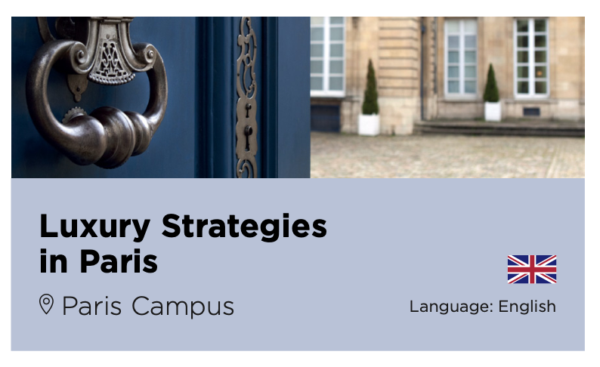
Paris, France
Luxury Strategies in Paris
When:
16 June - 26 June 2026
Credits:
6 EC
Read more
Communication, Media and Journalism
When:
14 July - 02 August 2025
School:
Institution:
Universitat Autònoma de Barcelona
City:
Country:
Language:
English
Credits:
6 EC
Fee:
930 EUR

During the past century, new practices of journalistic styles in the press arose, at the same time that the role of media in the society was reconfigured. This subject analyses the course of journalism through its various genres, interviews, chronicles, and reports.
By reading prominent texts and watching audiovisual content, the aim will be to understand the structure that articulates them. What were the intentions of those who conceived them? Which effects do they have on the audiences?
We will also work with resources that can be used in order to optimize communication in a more effective way. We will also explore the new digital narratives evolution, from an analytical and descriptive perspective, avoiding normative parameters and catalogues. A social perspective will be considered too. What do we talk about when referring to 'quality journalism'? What is its contribution to a critical democratic society? Students are expected, after the course, to be able to identify the different genres, their main features, and to understand what strategies the authors have used and which effects they sought to provoke in the audience.
Ezequiel Ramon, professor of subjects related to public opinion and political communication from a sociological perspective. Universitat Autònoma de Barcelona/ Autonomous University of Barcelona (UAB)
The UAB Barcelona Summer School is open to standing local and international undergraduates and graduates students. International students who have been accomplished the first year of their undergraduate or at least the 50% of their first year credits at their home university could also be enroled at the programme. A working knowledge of the language instruction is highly recommended.
During the past century, new practices of journalistic styles in the press had arisen, while the role of media in the society was reconfigured. This subject analyzes the course of journalism through its various genres, interviews, chronicles, and reports. By reading journalism must-read classics, like Gay Talese, Truman Capote, Oriana Fallaci, and John Hersey, among others, the aim will be to understand the structure that articulates them. What were the intentions of those who conceived them? Which effects do they have on the audiences?
We will also explore the new digital narratives evolution, from an analytical and descriptive perspective, avoiding normative parameters and catalogs. A social perspective will be considered too. What do we talk about when referring to 'quality journalism'? What is its contribution to a critical democratic society? Students are expected, after the course, to be able to identify the different genres, their main features, and to understand what strategies the authors have used and which effects they sought to provoke in the audience.
Fee
930 EUR, The course fee for international and national students (non-UAB students) is € 910 but those who register before May 1st will get 20% discount.
When:
14 July - 02 August 2025
School:
Institution:
Universitat Autònoma de Barcelona
Language:
English
Credits:
6 EC

Paris, France
When:
16 June - 26 June 2026
Credits:
6 EC
Read more

Venice, Italy
When:
23 March - 27 March 2026
Credits:
2 EC
Read more

Antwerp, Belgium
When:
02 February - 06 February 2026
Credits:
3 EC
Read more